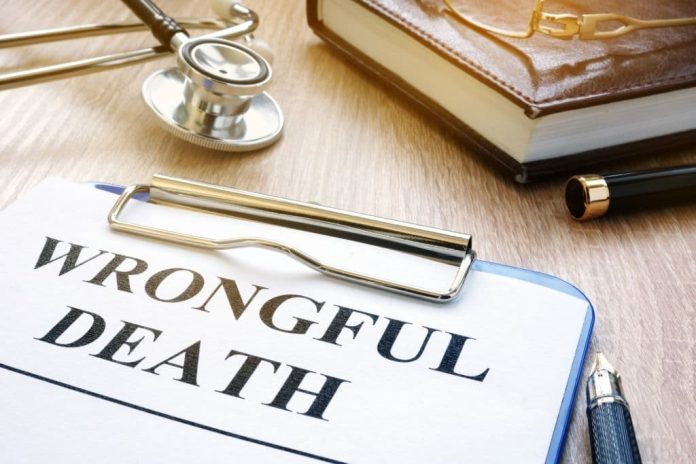A medical emergency is no laughing matter for anyone, at any age. Not only can this be a traumatic experience, but it can also lead to years of pain and suffering if your treatment is mishandled.
Unfortunately in the medical industry, people sometimes lose their lives at the hands of the physician performing operations and procedures. Though this is often accidental, many times this happens due to negligent behavior.
If you’ve lost a spouse, child, or loved one and you suspect that it’s from wrongful death, you have the right to pursue legal action and get compensation. And, though losing someone close to you can be a painful experience, those at fault should not go without paying for their mistakes.
Here, we’ll explore what wrongful death is, and what you can do about it.
What is a Wrongful Death?
Wrongful death refers to when someone loses their life due to serious injury from the negligence of another person or entity, usually at the hands of a physician or because of a corporate policy.
It should be noted here that a wrongful death lawsuit is not a criminal charge. Though you will be able to pursue a criminal case as well in some wrongful death situations, wrongful death is handled in civil court, making it a civil offense, separate from any criminal charges.
Some instances of wrongful death include, but are not limited to the following list:
- Medical malpractice
- Toxic torts
- Automobile accidents
- Criminal activity
- Manufacturing defects
- General negligence
No matter the nature of wrongful death, the key thing to remember is that you have to prove that the opposing party was negligent.
This means that a situation occurred where the person deemed to be at fault knew about his or her negligence or there was a known condition deemed as negligent that was never resolved.
How to Handle A Wrongful Death
If a spouse, child, or loved one loses their life and you suspect negligence on the behalf of a third party, the first thing you need to do is file a report with the governing body of the institution in which the negligence happened.
You may also consider filing a police report as well, especially if you suspect nefarious or criminal conduct.
Additionally, you should also immediately contact an attorney to handle your wrongful death case. Attorneys and legal counsel in this field are well-trained and well-versed in the law surrounding filing a wrongful death claim, and they’ll know exactly what type of compensation you’ll be able to receive.
Compensation for wrongful death may be received due to the following conditions, but also may include other conditions as well:
- Lost income
- Lost future wages
- Punitive damages
- Pain and suffering
- Medical expenses
- Funeral costs
- Consortium loss
While several of the above conditions may be compensated for, you may also have reason to receive additional compensation depending on the nature of your wrongful death case.
Coping with Loss
While it’s not easy to deal with the loss of a family member or loved one, this is one part of life that is promised to us all. Though some of our lives may be cut short, we all have to face our last day at some point along our Earthly journey.
As such, life also must continue for those our loved one’s leave behind. The pain from loss will be tough to bear, but it is also equally important to celebrate the lives of those who leave us and continue on with our lives if only to honor and respect the lives of the departed.
During the grieving process, it is critical to reach out and find comfort. In doing this, you might have family to rely on during this difficult time. If family isn’t available, a grief counselor or groups devoted to the loss of loved ones might be options to consider.
Even while you’re in the process of a wrongful death lawsuit, it’s important to remain in good spirits, no matter how hard it might seem at times. Remember, life does move on, and this makes room for us to create new memories.


